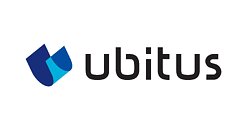Cadence to Acquire Arm Artisan Foundation IP Business
Cadence today announced that it has entered into a definitive agreement with Arm to acquire Arm's Artisan foundation IP business, consisting of standard cell libraries, memory compilers, and general-purpose I/Os (GPIOs) optimized for advanced process nodes at the leading foundries. The transaction will augment Cadence's expanding design IP offerings, anchored by a leading portfolio of protocol and interface IP, memory interface IP, SerDes IP at the most advanced nodes, and embedded security IP from the pending Secure-IC acquisition.
By increasing its footprint in SoC designs, Cadence is reinforcing its commitment to continuously accelerate customers' time to market and to optimize their cost, power and performance on the world's leading foundry processes. Cadence will acquire the Arm Artisan foundation IP business through an asset purchase agreement with a concurrent technology license agreement, to be signed at closing and subject to any existing rights. As part of the transaction, Cadence will acquire a highly talented and experienced engineering team that is well respected in the industry and can help accelerate development of both related and new IP products.
By increasing its footprint in SoC designs, Cadence is reinforcing its commitment to continuously accelerate customers' time to market and to optimize their cost, power and performance on the world's leading foundry processes. Cadence will acquire the Arm Artisan foundation IP business through an asset purchase agreement with a concurrent technology license agreement, to be signed at closing and subject to any existing rights. As part of the transaction, Cadence will acquire a highly talented and experienced engineering team that is well respected in the industry and can help accelerate development of both related and new IP products.



















































